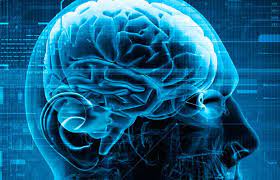Aging comes with numerous challenges, and memory loss is frequently at the center of these concerns. Is forgetting names or misplacing things a cause for worry, or is it merely a part of the aging process? Today, Evoke Neuroscience will discuss the mystery behind memory loss and aging, shedding light on when it’s normal and when it might signal a deeper issue.
Normal Age-Related Memory Loss
Not all memory loss should cause concern. Generally, mild forgetfulness, such as struggling to remember a person’s name but recalling it later, is a normal part of aging. Other than that, slowness in remembering information or recalling memories can also be typical with aging.
The Aging Brain
Your brains inevitably change as you age, impacting your memory capacities. The hippocampus, crucial for memory formation, naturally degrades over time, causing mild memory lapses. Aging also often results in reduced blood flow to the brain, leading to slight forgetfulness.
Abnormal Memory Loss
However, not all cases of memory loss are normal. If memory loss starts interfering with normal activities, such as getting lost while driving in a familiar area or struggling to follow instructions, it can signify more severe issues, like Alzheimer’s disease. Memory problems that start suddenly or worsen rapidly could also be a sign of severe brain conditions, including dementia.
Other Symptoms to Monitor
Aside from memory, other cognitive changes could flag potential problems. For one, difficulties with speech or comprehending language can denote cognitive problems. Other than that, extreme shifts in mood or personality can also hint at severe memory disorders.
Monitoring Memory Health
And lastly, regular monitoring can alleviate worries or help take early action if needed. Evoke Neuroscience For one, getting frequent cognitive health assessments can detect any abnormal memory loss. Other than that, you need to stay cognizant of your memory patterns and seek the needed help if you notice significant changes or disruptions to daily functioning.



